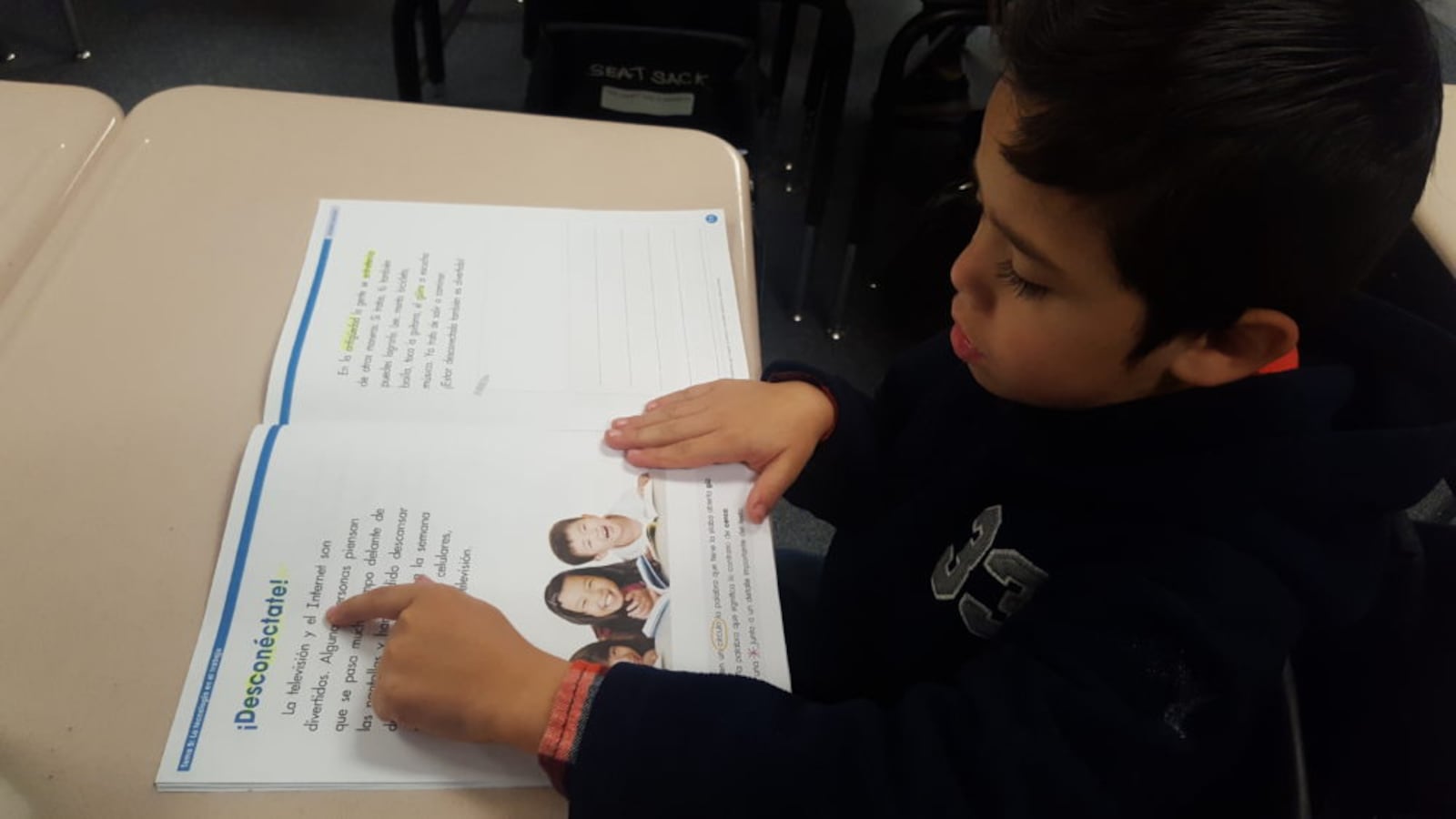As it faces state intervention next week, questions over its governance, and ongoing public outrage, the troubled Adams 14 school district is keeping a new plan for restoring a popular biliteracy program secret.
Superintendent Javier Abrego last week submitted a plan, as requested by the school board, on how he will expand by January a program that teaches students to read and write in both English and Spanish. Last year Abrego scaled back the program, which had strong parent support.
But the district has declined to release details of Abrego’s plan.
In a private meeting in September, the school board directed the superintendent to come up with the plan, following pressure from parents, teachers and advocates.
“How can they get input if they keep it secret?” asked Jorge Garcia, an advocate for bilingual education who believes the community should be involved in all discussions about biliteracy. He asked the district to release executive-session audio, but officials told him the meeting was not recorded.
Adams 14 officials also refused to reply to Chalkbeat calls and emails about why they’re not publicizing details of the biliteracy plan.
This week the district also submitted to state officials how it will approach improving itself. The proposal contains no mention of biliteracy education — except that graduating seniors may earn a seal of biliteracy on their diplomas.
Parents, teachers and advocates in Adams 14 have been up in arms for more than a year after the district cut back on biliteracy programming.
Parents who pushed for the board to order the superintendent to restart the program want to see the resulting plan and want it detailed to the state. The State Board of Education is scheduled to issue its improvement orders to Adams 14 next week.
The district had begun biliteracy instruction at a few schools and was expanding by one grade level every year. The original plan called for the elementary instruction to eventually align with new middle school and high school offerings leading to graduating students having the option of earning a Seal of Biliteracy, proving they are fully biliterate — which goes beyond being bilingual.
But Abrego, who joined Adams 14 after it had launched biliteracy, found that biliterate teaching conflicted with his belief that students need to become proficient in English as quickly as possible to boost the district’s state test scores. He also cited difficulties in hiring enough qualified teachers for the program.
Adams 14 has nearly 50 percent of its students identified as English language learners — the highest percentage among districts in the state. When Abrego first took over the struggling district in August 2016, he said he hoped to find ways to get students fluent in English within two years.
Many researchers disagree that proficiency can be reached that quickly. Several studies show that students can benefit in the long run from bilingual or biliteracy instruction. Some local data also suggest that when English learners do become fully fluent in English, they can outperform native-English speakers on state tests. But many schools, including in Adams 14, struggle with moving students to full proficiency, while helping them make academic progress.
The district’s original improvement, or turnaround, plan, approved by the state last year, mentioned developing biliteracy options for students and requiring new teachers to get degrees and state endorsements to teach English learners.
“These efforts are intended to build capacity to continue and grow the biliteracy program and to assure that the needs of our culturally and linguistically diverse student population are being met by recruiting the most highly-qualified and talented individuals,” the turnaround plan states.
In speaking about that plan now, Abrego has avoided speaking about biliteracy and talked instead about English-language development instruction, which the district is required by federal law to provide.
At recent meetings led by a district consultant about the new proposed plan, several community members and advocates have asked the district to ensure biliteracy is part of any new plans for the district.
Adams 14 also ended previous partnerships with CU Boulder to train teachers and provide curriculum for the biliteracy program.
Barb McDowell, the president of the teachers union, said the superintendent has not worked with the union on the biliteracy plan, but said there is interest from teachers.
The district’s attorney sent McDowell a letter in September and suggested the district would collaborate with teachers.
“To ensure that the plan reflects input of teachers at the affected schools, the board encourages the association to work with district staff and school leadership in developing the plan,” the letter states. “You should hear from district staff soon.”
She is still waiting.


